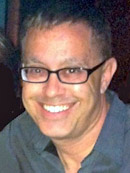
THE BRIDGE TO COLLEGE
Perspectives on the College Essay From a Successful Applicant

College admissions don’t have to be a time of nonstop stress and mental breakdown. That’s everyone’s initial thought, and it was mine, too. The process is designed for teenagers, but the world is ridiculously filled with misinformation about everything college-related.
At the end of my junior year, I was thrown into the struggle when my school counselor scheduled the one-and-only meeting with me and my parents. The more I began to think about my plan for writing my college essays, the more I realized that I had no idea how to plan and organize this. My parents realized the same thing.
Before the start of my final high school summer, my dad suggested looking for a college consultant to help guide me through the process. We quickly scheduled a consultation. After the meeting, the burden of stress was immediately lifted off our shoulders, especially for my parents. I had a plan, or at least I had guidance from a mentor.
Almost every college application starts with “the essay.” What you soon learn is that there are a LOT of essays in those applications, but “the big one” ignites explosive fear when you even think about drafting the most important essay you will ever write. For most, the essay gets dragged out painfully for weeks or months. My experience was different.
After brainstorming with my consultant, I did something that I had avoided in high school: I started outlining. That was an important step, one which made my draft easy and quick. Then I learned the value of editing, something I had never encountered. We went back and forth in the editing process until the essay was my favorite writing of all time. I couldn’t help but think that my essay turned out just how I wanted. It reflected me perfectly.
Then I received an odd reality check when I showed it to my school counselor. She made some corrections, changing it structurally, suggesting I do more “telling” instead of showing. This confused me. “You should take out a lot of the details and focus more on telling them who you are.” I thought my story clearly exemplified that, and I was certain my personality was being displayed in my essay.
I went back to my consultant to talk about what my counselor had told me. He cleared my confusion within five minutes. “You like how your essay turned out, right? It gives you the best understanding of who you are, right?” Yes, it was what I wanted. Realizing that there are a lot of opinions about what works and what doesn’t work, and that I had to make my own decision based upon advice I could trust, my confidence had been restored. I kept my essay the same.
Fast forward to spring, and college decisions were being released. Fittingly enough, my acceptance to Boston University came out while I was in Boston during spring break. I was accepted to a program that would require me to take a gap semester for the fall term. BU was my favorite option, but I was unsure about delaying the start of college. I called my consultant and asked him his opinion on where my best fit would be. He told me that taking a gap semester could be extremely valuable if I had an intelligent plan for my time. When I told him I was hoping to find internships but hadn’t any yet in mind, he offered me a job.
This was my first job ever. A year earlier, I had just started the college process, but now I would be helping students from the consultant’s side. My first tasks were tedious fundamental work, but after a few months I started to understand how the same program I had used really did work.
Editing outlines was my first lesson. I learned that detail is crucial; the more detail provided, the more effective the visualization from the essay. I then started doing first edits of student drafts, learning editing techniques that I had not really appreciated before. Another editor showed me what I did right, and wrong, before he performed a second edit. I soon realized what my consultant had told me all along: the concept is the key to the essay. Once you have that, an intelligent structure — designed upon marketing techniques and human memory science — made the message ring clear.
Not every student needs a consultant, but by using one I have come to realize that what I had been told before I started applying to college was the reason for all of my family’s stress. There’s a lot of misinformation out there. Doing a good job on college essays isn’t hard, but there are better methods than others. Now that I have seen the light, I help my friends with their essays, and the ones I write during college won’t be so bad.
Robert A.G. Levine, president of Selective College Consulting Inc., can be reached at (813) 391-3760, email [email protected] or visit www.SelectiveCollegeConsulting.com